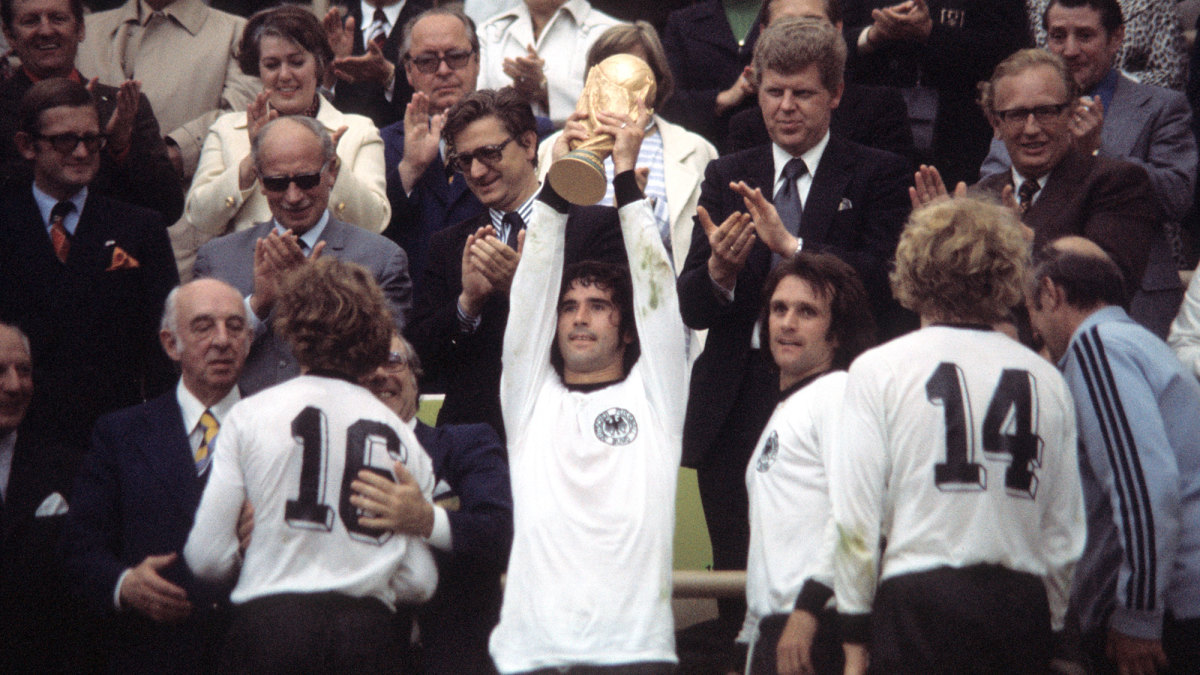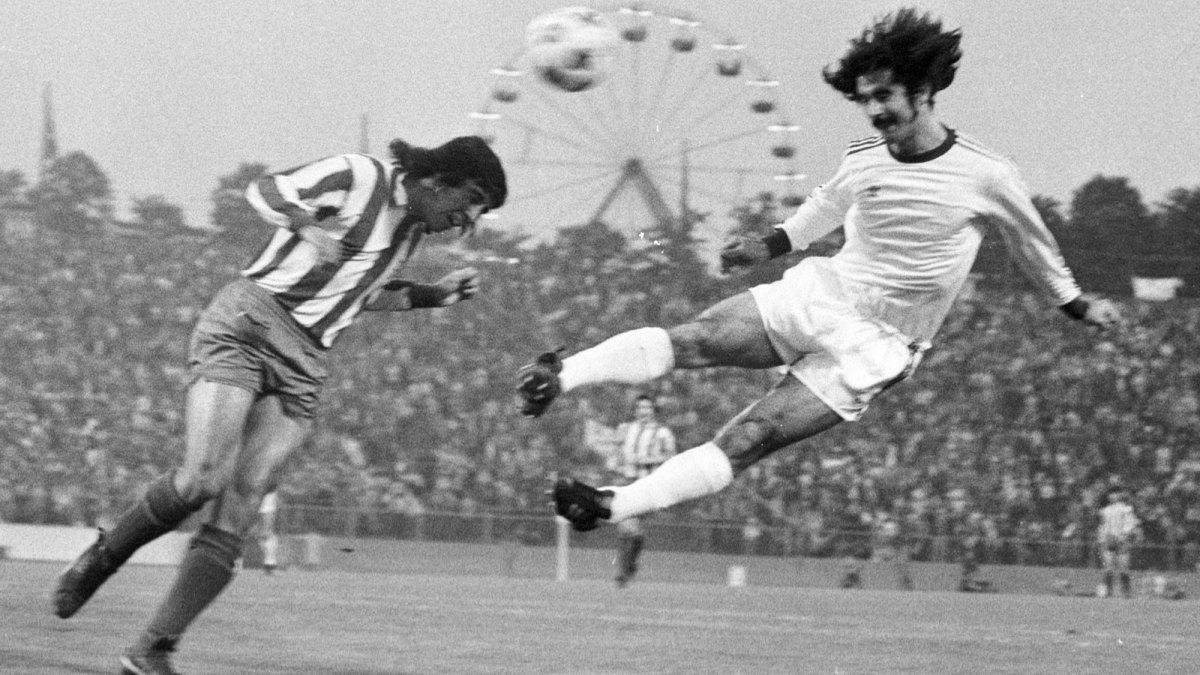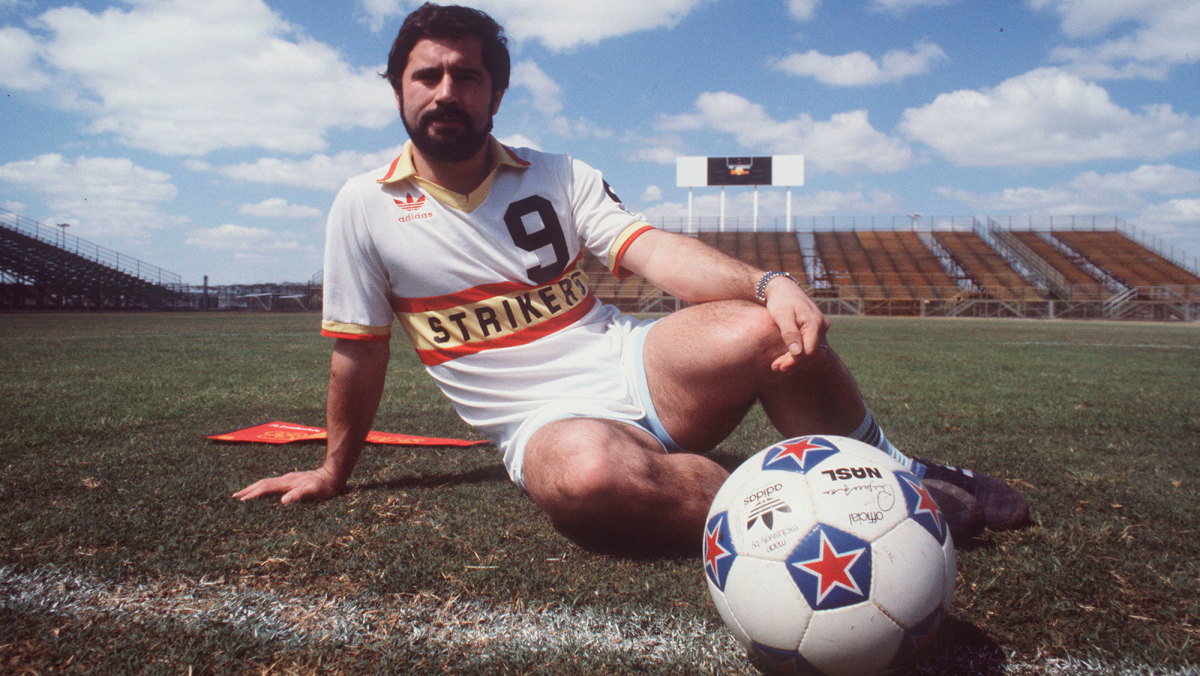What Made the Late Gerd Müller So Great

For those of us of a certain age, Gerd Müller was archetypal. If you grew up in the early 1980s, he was the goalscorer, the poacher, a World Cup winner, a European Championship winner, a three-time European Cup winner. Perhaps with the internet the dynamic has changed, but back then, every generation revered the greats of the one gone just before they began to absorb football, the ones the generation you were watching were always compared to. We would get excited about Ian Rush or Paolo Rossi and would inevitably be told that they were no Gerd Müller, the German and Bayern Munich great who died Sunday at 75.
Some would still refer to Jimmy Greaves, who was slightly earlier, but we knew more about him. We knew that in his youth he had been a quicksilver inside forward, and one of his most famous goals involved him turning just outside the box and running past four players before finishing. That was something more than poaching.

About Müller, in those days when foreign football was never screened, we knew nothing but his goals in World Cups—14 in total—and those seemed to confirm the myth. He didn’t do anything apart from score. Five of his 10 in 1970 (he was the last player to reach double figures in a single tournament) came from within the 6-yard box, and none of the others from further out than the penalty spot. Two of his four in 1974 were from inside the 6-yard box, one while sitting on the ground, and both of the other two were classically opportunist: pouncing on a loose ball against Poland before his turn and scuff against the Dutch in the final, an odd (poor? Deliberate? With Muller it was often hard to tell) first touch throwing his marker.
The romantic story has it that a childhood playing on the cobbles of Nördlingen had taught him how to direct a ball that had bounced awkwardly, and perhaps there is some truth in that. More prosaically, he had huge, powerful thighs that gave him explosive pace over short distances and made him almost impossible to knock over.
Müller had an astonishing awareness of where there would be space, where the ball would break and how he could put it past the goalkeeper. He was no aesthete. He would score with any part of his body. He was a fine header of the ball, but if he had an obvious skill that set him apart, it was that his low center of gravity allowed him to turn sharply—and led his first coach at Bayern, Zlatko Čajkovski, to dismiss him as “kleines, dickes Müller,” or "short, fat Müller"—although he was actually of average build. His nickname, Der Bomber, seems equally inappropriate for a master of the nudged finish.

In England, thanks to his goal in the 1970 World Cup quarterfinal and his two in the first leg of the Euro ’72 quarterfinal, he became a bogeyman; the archpoacher, there to feast on defenders who switched off for a fraction of a second. (If you want a measure of his influence, when I appeared on a televised student quiz in 1998, I wore a Müller 13 shirt believing, correctly as it turned out, it would guarantee inelegant success. In the third round, I wore a Cruyff 14 shirt; we lost, gallantly.)
And he was that. He also scored two goals in the Euro 1972 semifinal and another two in the final; two for Bayern in the ’74 European Cup final replay and one in the ’75 final; in total he scored 654 goals in 716 appearances for TSV Nördlingen, Bayern Munich and the Fort Lauderdale Strikers of the old NASL, as well as 68 goals in 62 matches for West Germany. Robert Lewandowski may have broken his single-season Bundesliga record of 40 goals last season, but Müller’s all-time tally of 365 remains the standard. But he was also a lot more than that. The goals obscure everything else, but to watch, for instance, his performance in West Germany’s 3–1 win at Wembley Stadium in ’72 is to be struck by how involved he was in the general play, holding the ball up and linking play. He was the poacher, but also a fine all-around striker.

Later life was cruel. After his playing career ended in 1982, he experienced depression and alcoholism. Bayern stood by him, though, paying for treatment and offering him work, first greeting visitors to the club and then scouting and coaching, until Alzheimer’s struck. Essentially bed-bound for the past year, he could not attend Bayern’s celebration of his 75th birthday last November, but at it Franz Beckenbauer said, “Without Gerd, we would never have had that success. He scored the goals and had the mentality that took us forward. I’d perhaps say Gerd wasn’t the best player, but he was the most important.”
Müller was probably the greatest natural goalscorer football has ever known, but to focus only on the goals is almost to diminish him. He was a great player for one of the greatest club sides and one of the greatest national teams there have ever been.
More Soccer Coverage:
